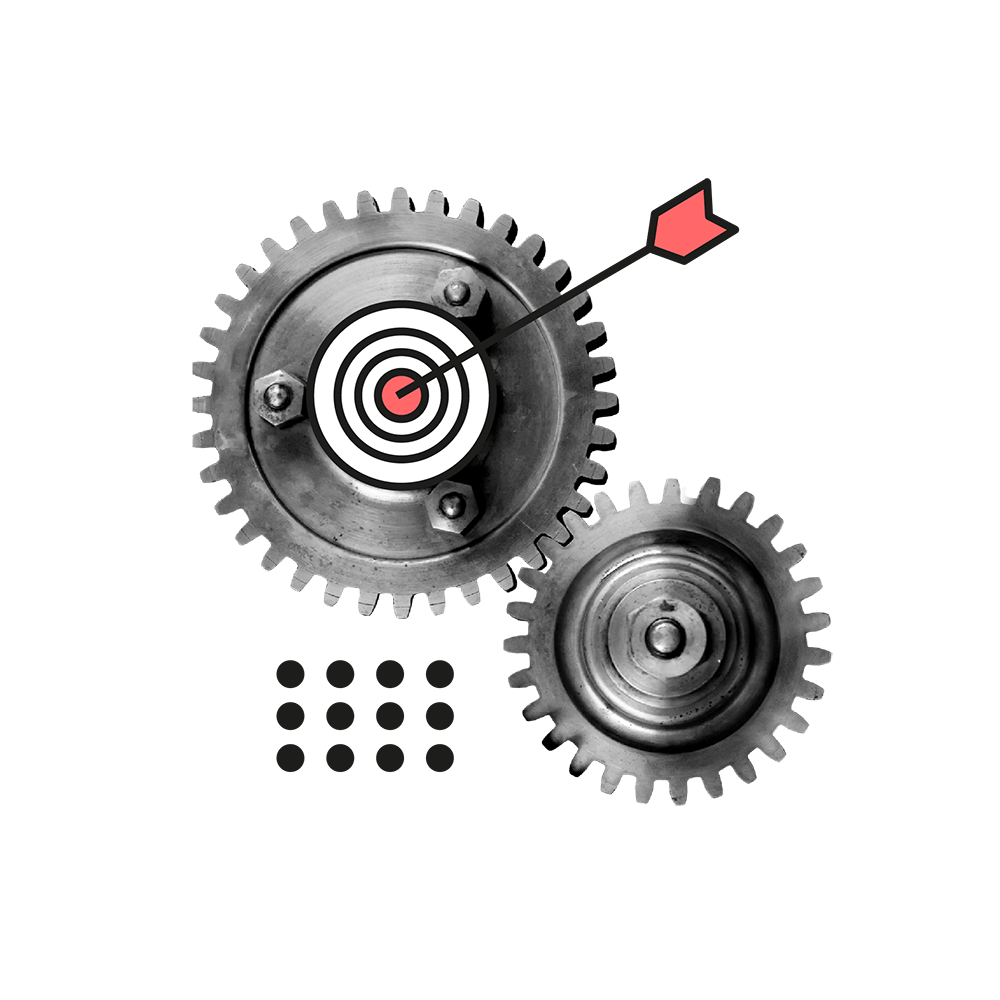Efficiency in your operations
Have an efficient and relevant operation for your customers.
Operations must complement sales and be aligned to the company's strategies and objectives. In other words, it is just not enough to sell more, it is important to have efficient operations in order to be more scalable and profitable.
You need to be as obsessed with operations as you are with sales. Through a comprehensive check-up of your business and operations, we can help you define the best way to increase your operational efficiency.

Long working hours do not necessarily mean high productivity. On the other hand, smart working hours make all the difference.

Services
Expenses efficiency and resources optimization
Not all of a company's expenses are necessary for the operation, there is always an opportunity to optimize resources through proper management.
Lean manufacturing and lean systems
Reduce waste, optimize your resources and reduce costs by implementing a culture of continuous improvement in your company.
Value chain mapping
We help you to comprehensively transform your company's value chain to improve service and quality, reduce your operating costs and mitigate risks.
Process design and reengineering
We analyze the way your company currently operates and rethink those processes that do not work as they should, in order to align your operations to your objectives and reduce your costs.
Organizational structure
We analyze your organizational structure and implement the necessary changes that will lead you to have the right amount of personnel for the size of the company and redefine the activities of each position, directly impacting your efficiency.
Change management
We implement strategies to carry out, control and help the company and collaborators in how they manage change.
If you increase your sales but are not efficient in the operation, at the end of the day your profits will be the same, or even less.
Our capabilities
Here are some of the capabilities that our expert team has in relation to Operational efficiency.
Advanced Analytics
The first step to plan for the future is to understand the future. Using statistical tools, we can assess the future based on historical data and complement experienced-based information of your team. For example, you may want to know if an investment in capacity will be required in the future and allocate CAPEX for the next 10 years. Using statistics, we can forecast demand year by year, assess confidence intervals and provide recommendations.
Inside our Advanced Analytics toolbox, we can find for example:
-
Linear regression
-
Time-series analysis
-
Multivariate regression
-
Data mining
-
Among others
Data Processing and Analysis
We love data. But more often than not data is not ready for use. It must be inspected, cleaned, transformed, validated and just then used for decision making. Once ready, we can work from simple tasks such as sorting, summarizing, classifying and reporting; to complex analysis using statistics, data mining, descriptive and predictive modeling, visualization, among others.
Inside our Data processing and analysis toolbox, we can find for example:
-
Sorting, summarization, aggregation and classification
-
Data integration
-
Exploratory data analysis
-
Reporting
-
Among others
Optimization
Mathematical optimization was just ‘invented’ in the 1940’s but has come a long way since then. New techniques and larger computer processing capabilities have made it possible to implement optimization in virtually all industries and problems. In summary, if you can establish the characteristics of any process, then you can optimize it based on important variables and the restrictions under which it operates.
Inside our Optimization toolbox, we can find for example:
-
Linear programming
-
Mixed-integer programming
-
Heuristics and algorithm design
-
Combinatorial optimization
-
Among others
Sampling and Data Acquisition
There are some cases in which data isn’t readily available or complementary data is required. Depending on each situation, sampling might be enough or an automated data acquisition system may be required. We will assess each individual case and define the type and complexity of sampling activities; as well as design any acquisition systems that could be needed to retrieve data from systems or processes.
Inside our Sampling and data acquisition toolbox, we can find for example:
-
Stratified sampling
-
Sample size estimation
-
Extract, transform and load process
-
Data acquisition systems
-
Among others
Expenses efficiency and resources optimization
![]()
There is always an opportunity to optimize resources through proper management.
This management must be continuous and can be done through tools and procedures to support actions in the operation that impact positively and directly to profitability.
We promote the use of operations research tools, discovery and statistical and mathematical analysis to find optimal and feasible solutions that allow you to make the most of your company's resources. These are packaged in user-friendly and understandable solutions.
All waste costs money. Reduce waist in time and form.
Lean manufacturing and lean systems
![]()
Reduce waste, optimize your resources and reduce costs by implementing a culture of continuous improvement in your company.
A system is considered lean when it generates the minimum of waste while maximizing productivity. This applies not only in manufacturing, but also in any production system that uses company resources.
Through an evaluation of your systems we can help you identify areas of opportunity that could be generating waste.
We can also help you manage changes and practices to improve these opportunities, eliminating waste, improving quality and reducing time and cost.
Value chain mapping
![]()
Comprehensively transform your company's value chain.
A key activity in creating operational efficiency and lean systems is to efficiently map your value chain. This allows us to identify and eliminate activities that do not generate value, as well as reduce those that are necessary but do not generate value.
This activity is a must for engineering; but sometimes it can be difficult to execute when the same operation overwhelms you on a day-to-day basis.
To get different results, you need to do different things.
Process design and reengineering
![]()
We rethink those processes that do not work as they should, in order to align your operations to your objectives and reduce your costs.
Many times the company's processes are just not the right ones, or have internal or external frictions that interrupt their proper functioning.
In most cases, the mere fact of rethinking the processes allows you to generate additional value to the experience that your company can provide. Whether identifying problems or working with those that were already identified, it is possible to find great opportunities for change for your team and company.
Not all companies are the same; however, there are organizational structures that have proven to be the most efficient.
Organizational structure
![]()
We analyze your organizational structure and implement the necessary changes that will lead you to have the right amount of personnel and to redefine the activities of each position.
It is necessary to have a technical structure that supports you in generating, executing and sustaining the changes that are made to achieve the operational efficiency of your company.
Likewise, by detecting technical needs in the structure, we can suggest the best options for your company based on international best practices and proven organizational methods.
Cadence is key in maintaining scalability.
Change management
![]()
We implement strategies to carry out, control and help the company and collaborators in how they manage change.
The cadence of the teams to the proposed changes is what usually fails at the time of finalizing the restructuring or rethinking of processes.
We can help you proactively maintain a steady pace in the team in order to achieve continuity and follow-up of such changes.
Using training and an accompaniment scheme for your team, and focusing on key members of the team, we can promote a work culture of follow-up and continuous improvement in the company and in the areas worked on.
More capabilities
Process and Queue Optimization
One of the most traditional applications of operations research is related to process optimization, queue management and logistics. Once you have a set of activities that are done in a methodological manner and in which products, people and resources converge; you have an ideal framework to apply operations research for planning and optimization.
This includes system design, queueing management and optimization, logistics network design, vehicle routing, among many others. Solutions might be related to strategic planning, CAPEX decisions, operational tools and software, and much more.
Transportation and Logistics
Logistics has been one of the larger users of operations research throughout time. The transportation of goods and services, from raw material to the shelf and to the end customer, implies a methodological process that runs on logistics networks –many times worldwide.
This flow of goods can be highly optimized –many times with counterintuitive measures that can only be possible and work by the usage of supply chain analytics and operations research.
From the strategic design of logistics networks to the operational decisions of vehicle routing; we can aid our customers to be more efficient while improving service levels.
